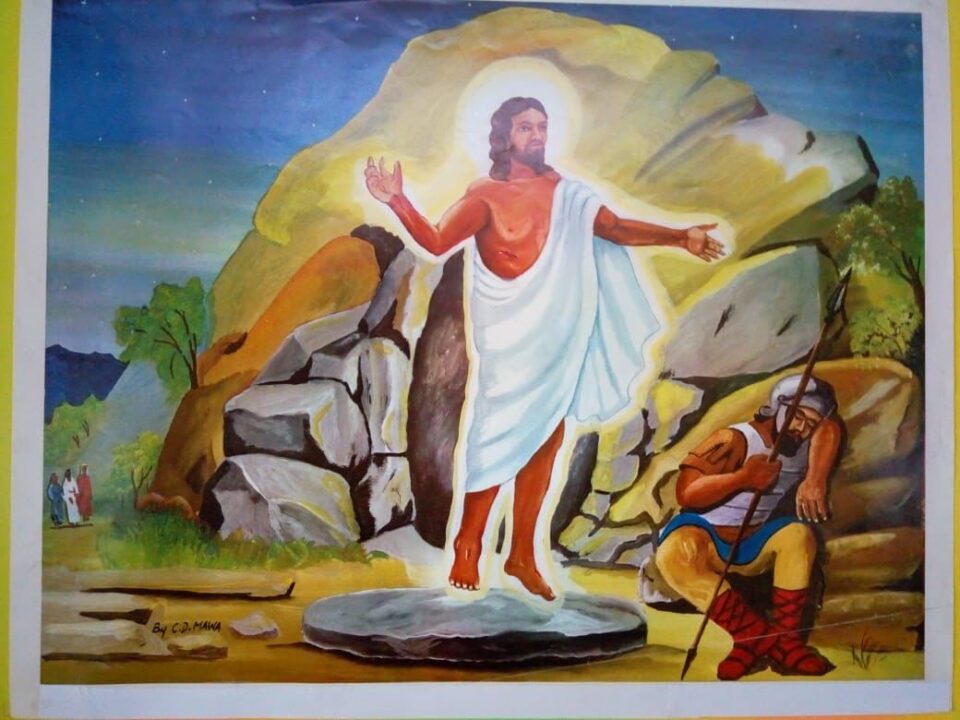- Contact us on - Contactez-nous sur - Contacte-nos em
- +233-30-277-8867/8
- +233-30-277-2548
- secam@secam.org
Burundi Bishops Call for National Dialogue to Avert Renewed Civil War
Burundi Bishops Call for National Dialogue to Avert Renewed Civil War
Crux || By Ngala Killian Chimtom || 21 September 2017
 Earlier this month, a United Nations inquiry claimed that crimes against humanity are being committed in Burundi. The report said killings, torture, sexual violence, degrading treatment, enforced disappearances and arbitrary arrests have been taking place since the controversial 2015 election. The bishops said in a statement, “We want to once again insist on the inclusive dialogue that must be prioritized for the greater interest of the nation and with a view to blocking the way to all those who choose the path of war.”
Earlier this month, a United Nations inquiry claimed that crimes against humanity are being committed in Burundi. The report said killings, torture, sexual violence, degrading treatment, enforced disappearances and arbitrary arrests have been taking place since the controversial 2015 election. The bishops said in a statement, “We want to once again insist on the inclusive dialogue that must be prioritized for the greater interest of the nation and with a view to blocking the way to all those who choose the path of war.”
Burundi needs to bar the way to war with inclusive dialogue, according to the nation’s bishops.
Burundi has been suffering instability since April 2015, when President Pierre Nkurunziza announced he would seek a third term, despite objections from the bishops and others that this would violate the country’s constitution.
The president’s supporters said the first term did not count, since it was not through a popular vote, since he was elected by the National Assembly as the final stage of the country’s fragile peace process.
According to Bishop Joachim Ntahondereye of Muyinga, and chairman of the Episcopal Conference of Burundi, democracy is not fully understood by many in the country, and has been reduced to simply organizing periodic elections while “ignoring the respect of its principles and values.”
Nkurunziza eventually won re-election, and the nation has been plagued by political violence ever since.
Earlier this month, a United Nations inquiry claimed that crimes against humanity are being committed in Burundi.
The report said killings, torture, sexual violence, degrading treatment, enforced disappearances and arbitrary arrests have been taking place since the controversial 2015 election.
“The Commission has reasonable grounds to believe that the above-mentioned crimes against humanity are attributable primarily to State officials at the highest level and to senior officers and members of the National Intelligence Service, the police, the army and the Imbonerakure,” the report said. The Imbonerakure is a youth group affiliated to Nkurunziza’s party.
The report further chronicles torture methods which include “beatings with clubs, rifle butts, bayonets, iron bars, metal chains or electric cables,” with victims raped and forced to eat human excrement.
The nation’s Catholic bishops say they have the moral obligation to guide the people towards the path of peace.
“Everyone knows that disagreements between politicians have resulted in mutual exclusion, killings and assassinations,” the bishops said in a statement read at Mass in every church on September 10.
The bishops issued the document after their plenary meeting, which took place September 6-9 in Bujumbura.
“We want to once again insist on the inclusive dialogue that must be prioritized for the greater interest of the nation and with a view to blocking the way to all those who choose the path of war,” they said.
The bishops said Burundi had suffered so much from war, and warned against creating the conditions for a new conflict. They underscored the need for unity in the fractured country.
“Those who are in power or those who seek to conquer it must understand that all Burundians are like travelers who share the same road. Everyone needs the contribution of the other,” they said.
They said delaying dialogue could further escalate an already tense situation.
According to the United Nations and human rights groups, between 500 and 2000 people have been killed in political violence since 2015, and 400,000 have fled the country.
Neighboring Congo alone hosts at least 44,000 Burundian refugees, yet they are not safe.
At least 39 refugees – including a 10-year-old girl – were killed by Congolese security forces in eastern Congo last Friday, after a protest.
Burundi suffered a civil war from 1993-2005, which – like neighboring Rwanda – pitted ethnic Hutus against the minority Tutsi population. The civil war led to the deaths of over 300,000 people, including Archbishop Michael Courtney, the papal nuncio for the country, who was murdered by rebels in 2003.
“Everyone knows that misunderstandings and disagreements among politicians spiraled out of control, causing suspicion, bitter resentment, manhunts, murders and massacres,” the bishops warned in their statement.
There are rising fears that the current political crisis could renew the ethnic conflict, especially with the increasing use of words like “bugs” and “cockroaches” being used – terms reminiscent of the reference that was made to Tutsis in the past, especially in neighboring Rwanda.
The bishops said, “we ask that all of you make the commitment to build our country, Burundi, on the values of justice, love and freedom so that we can, at last, achieve lasting peace.”
Source: Crux…

